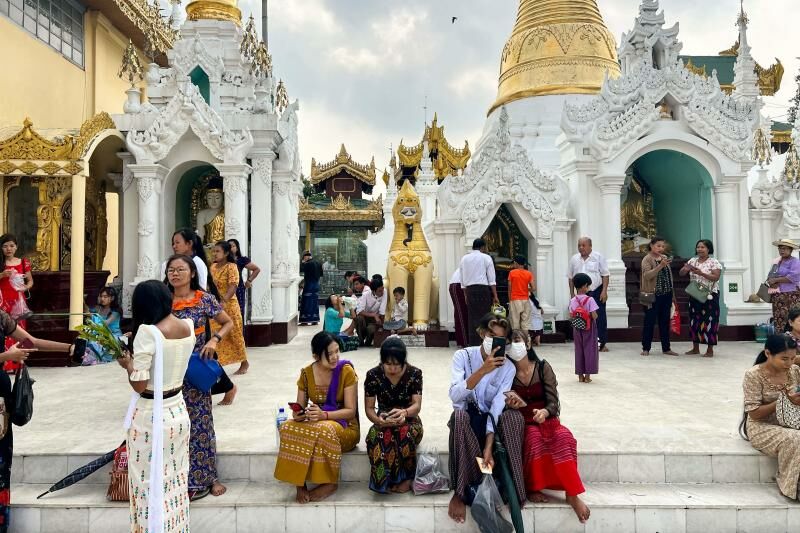Myanmar junta pardons over 2,000 prisoners jailed under dissent crackdown law

Myanmar’s military government announced today that over 2,000 prisoners detained under a law frequently employed in its crackdown on dissent have been pardoned. This move comes two years after the junta seized power, leading the country into a state of chaos.
Since the coup in February 2021, thousands of activists and protesters have been arrested by the military. Pardons were given to “2,153 prisoners serving sentences under Penal Code 505 (a) to commemorate Kasone Full Moon Day“, a festival celebrating the birth of the Buddha, according to a statement from the junta.
This law has a maximum sentence of three years imprisonment. The military granted these pardons “for the peaceful mind of the people and on humanitarian grounds,” they explained. However, re-offenders will have to complete the remainder of their sentence with an added penalty.
It is common for Myanmar to grant amnesties to thousands of prisoners in celebration of national holidays or Buddhist festivals. This recent announcement coincides with Chinese Foreign Minister Qin Gang’s visit for talks with the internationally isolated military leaders.
Qin met with junta chief Min Aung Hlaing yesterday, becoming the most senior Chinese official to engage with the top general following the coup. “China advocates that the international community should respect Myanmar’s sovereignty and play a constructive role in helping it achieve peace and reconciliation,” Qin stated, as reported by the Chinese foreign ministry.
Several Chinese-backed infrastructure schemes are planned to pass through northern Myanmar, providing a link between China’s landlocked Yunnan province and the Indian Ocean.
According to a local monitoring organisation, over 21,000 people have been arrested since the military overthrew Aung San Suu Kyi’s government. The United Nations reports that at least 170 journalists have been detained during this period. Suu Kyi herself has been under arrest since the beginning of the coup.
In December, the 77-year-old Nobel Peace laureate faced a series of closed-court trials deemed by rights groups as a sham, resulting in her imprisonment for a total of 33 years. A monitoring group has documented more than 3,400 casualties caused by the military’s crackdown on dissent since the coup took place.
Latest Thailand News
Follow The Thaiger on Google News:


























